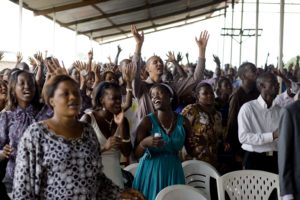This semester I worked on a project for Advocates International, an organization that
pursues justice globally on behalf of the oppressed. My team and I focused on a memo for
Advocates Africa regarding the persecution of Christians by Islamic militants. There are a great
number of examples of such persecution, from kidnappings to forced marriages to executions.
Most governments’ responses have been weak, either from lack of resources, corruption, or
denial. This has led to many African countries being the most significant source of Christian
persecution in the world, according to Open Doors USA.
In order to seek solutions, we researched the system of African human rights, such as the
African Union, the African Charter, and the African Commission and Court of Human and
Peoples’ Rights. The African Charter is the premier instrument on human rights in Africa and
has been adopted by all nations in the African Union. It guarantees certain basic human rights,
which include the freedom of religion. The African Commission and Court were established to
interpret and rule on all issues regarding the Charter. While individuals cannot usually bring
issues directly to the Court, they can bring them before the Commission, which can bring a
complaint to the Court. All nations are bound by the rulings that the Court hands down and are
obligated to enforce those decisions.
With this in mind, there are several options to utilize these instruments to combat the
oppression brought upon Christians. A Christian could bring an issue of persecution and lack of
government response to the Commission, which could hear the issue and make recommendations
to the offending state. If not implemented, the Commission could bring the complaint on behalf
of the aggrieved party to the Court, which could enter a binding judgment for them.
Additionally, some countries allow individuals and NGOs with observer status to bring
complaints directly to the Court. An NGO with this status could file a complaint to the Court,
which could hear and adjudicate the matter.
Surprisingly, the Court has not heard many religious freedom cases since its creation, and
this leaves a lot of room for organizations like Advocates International to step into this space and
help set the tone of how the Court will handle these issues in the future.
Written by Jonathan Haile, a Center for Global Justice Clerk

